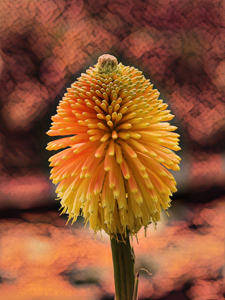Q: I am reading your book ” Confusions in Advaita Vedanta”.
I am from India, born in the Smarta Brahmin tradition of The revered Adi Shankara.
The purport of Adi Shankara as repeatedly explained by you is that no pramana or meditation except shabda pramana, teaching of scripture expounded by qualified teacher can give jnana. And this understanding happens in the process of listening once. Repetitions don’t help.
This caused both enthusiasm and later negativity in me. I have heard scriptures being expounded by Swami Dayananda, Swami Paramarthananda, Swami Brahmananda, Swami Parthasarathy, Sri Gangolli (translator of Swami Satchidananendra) etc. But no understanding or Jnana has resulted.
Am I doomed? Or Does it mean I was not qualified enough? More yoga sadhana required for purifying my mind? Of course there can be no doubt that the teachers were qualified. So fault is mine.
Tag Archives: Ramakrishna
Q.455 Physical changes on enlightenment
Q: In his book of talks called ‘The New Freedom’, Rajneesh (Osho) has stated that awakening disturbs the body and brain so much that a majority of people leave the body. Those who survive may suffer some severe physical deformity or inability to speak etc.
In the Gospel of Ramakrishna, Mahendranath Gupta relates how the Paramahamsa suffered on awakening. One of the changes that occurred was an enormous release of energy in the body which was unbearable. Adyashanti also states that the disturbance of the nervous system takes years to settle down. In ‘The Mystique of Enlightenment’, U. G. Krishnamurti has described at length the many drastic changes that took place in his body on account of awakening. In ‘Nothing is Everything’, a book on talks given by Nisargadatta Maharaj, the Sage is quoted as saying: “This body is on fire. Self-knowledge has a strange quality. Sometimes it is unbearable”.
What I want you to throw some light on, if possible, is the following:
Does awakening lead to drastic physical changes? Are they the same for all individuals or do these changes vary from person to person? Should one be deterred from attempting self-realization?
Steven Norquist, who claims to have awakened, told his audience in a 2010 talk available on the internet, that they should not seek awakening but should be ‘spiritual’. One of the reasons he mentioned was the bodily changes I have referred to.
I would also be obliged if you could suggest some literature on the subject, if it exists.
Continue readingsamAdhi (part 2)
Experience versus knowledge – a brief look at samAdhi (Part 2)
(Read Part1)

Here is the 364th verse of the vivekachUDAmaNi, as translated by Swami Ranganathananda, of Ramakrishna Math: “Reflection should be considered a hundred times superior to hearing, and meditation a hundred thousand times superior even to reflection, but the nirvikalpa samAdhi is infinite in its results.” The verse is referring to shravaNa, manana and nididhyAsana initially and, traditionally, this is the ‘complete set’, taking one all the way to realization and jIvanmukti. But here, it goes on to imply that nirvikalpa samAdhi is vastly superior. As Swami Ranganathananda puts it: “Our first hand experience of the non-dual reality is infinitely greater than meditation. They can’t be compared… no wise man would give up the infinite bliss of non-dual experience and revel in unsubstantial things like reading and thinking. Reading, thinking and meditation are nothing compared to the direct experience of the reality.”
But here, one has to ask the question: who is experiencing what? And, if it is an experience (i.e. in time), it has a beginning and necessarily an end also. How does this stack up with the idea that NS equates to Self-realization? Swami Satprakashananda even says later in the book that few seekers attain NS and even fewer return to ‘normal consciousness’ subsequently. “Their experience of NS is, as a rule, of short duration and hardly repeated. They leave the body in that state and attain Liberation (videha mukti). In exceptional cases the body stays alive in NS for twenty one days at the most, and then drops like a dry leaf.” Continue reading
Q. 392 – Traditional lineages
Q: Are there major differences between the lineage of Swami Sivanda and Ramakrishna Paramahamsa? If i want to study the traditional vedanta which teachings/teachers would you recommend?
A (Dennis): If you want ‘traditional’, steer clear of Ramakrishna-Vivekananda etc – they are ‘neo-Vedantins’ and diverge significantly in some respects. Sivananda I do not know so much about (except his Brahmasutra commentary is very good). I think his lineage may introduce elements of Yoga philosophy. I suggest you go for Swami Dayananda and disciples – you can’t go far wrong there!
Q: The only real question that matters “Who am I?” is also the major issue for the Ramakrishna lineage. Is their approach less truthful, and if so in what sense?
A: The bottom line of many systems may be the same. (Indeed, MUST be the same for any valid system, of course). It is how they guide the seeker to that understanding that is important. But, for neo-Vedanta, attaining nirvikalpa samAdhi is attaining mokSha. This cannot be true (says the traditionalist) because NS is an experience in time. We are already free, perfect and complete; the problem is that we do not know it.
Q: A quote from Nisargadatta: HOW CAN WORDS EXPLAIN THAT FROM WHICH WORDS ORIGINATE? Then what about all the spoken or written words from the Vedanta teachers?
A: It is not possible to speak about reality. All objectification is simply name applied to form. If you have ‘Book of One’ 2nd edition, read ‘Description of the Self’, P. 249. You lead up to it, using adhyAropa-apavAda and ultimately make the intuitive leap as in bhAga-tyAga-lakShaNa. You know what brahman is because you are That.
